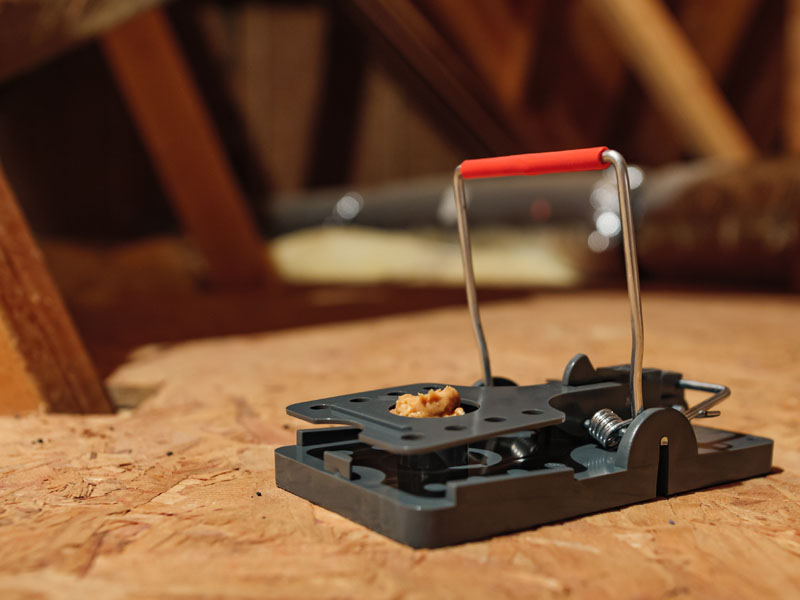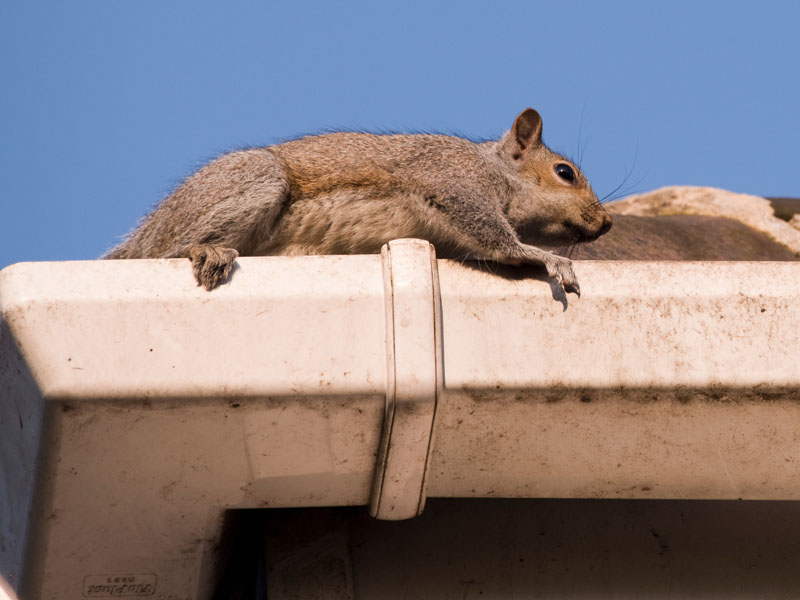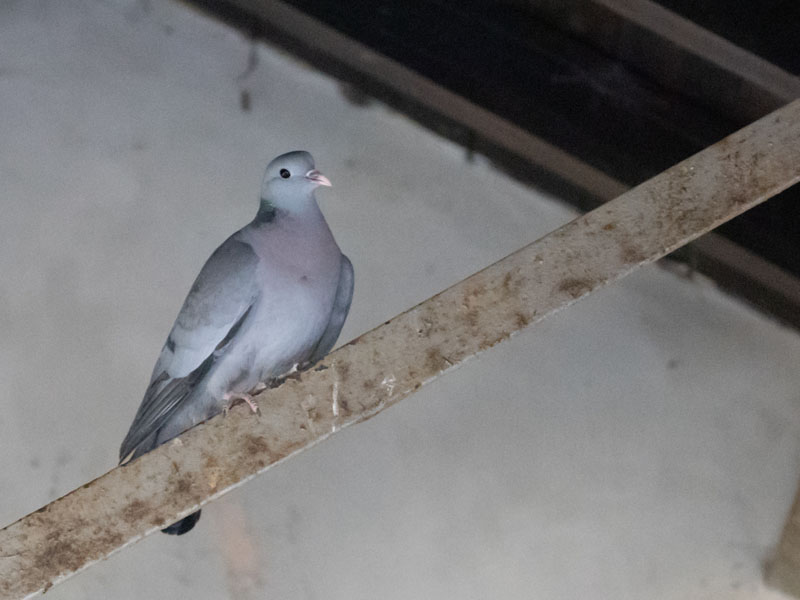If you hear unusual noises in your loft or attic, you may wonder what causes them and whether they are a sign of a pest. In this blog post, we will discuss some common causes of loft noises and how to check for signs of pests. We will also provide advice on how to get rid of different types of pests and why it’s best to call a professional pest controller like FurBeGone Pest Control.
What Causes Noises in Your Loft?
The most frequent reason for noises in your loft or attic is the expansion and contraction of ceiling components, such as wood or metal, due to temperature changes. During the day, these components expand and make noise as they rub against each other. At night, when it’s colder, they contract and create additional sounds. While these noises can be annoying, they are usually harmless and do not require pest control.
However, if you hear louder noises in your loft, such as scratching, gnawing, or scampering sounds, they may indicate that rodents or other wildlife have moved in. Lofts provide a warm and sheltered environment that appeals to animals like squirrels, rats, mice, bats, and birds. These animals can cause damage to your stored items, insulation, and electric cabling, and pose a fire hazard if they chew on wires.
How Can You Check for the Sign of a Pest in Your Loft?
If you suspect that you have a pest problem in your loft, you can check for signs of animal activity. If you have easy access to your loft space, use a torch or a light to inspect it carefully. Look for the following signs:
- Droppings: Different animals leave distinct droppings that can give you a clue to their identity. Rat droppings are blunt and spindle-shaped, about 1 ½ to 2cm long, while mice droppings are thin and pointed, about ½ cm long. Birds can leave droppings everywhere, often near their nests.
- Footprints: Some animals leave tracks or footprints on dusty or dirty surfaces. You can use talcum powder or flour to make them more visible.
- Destruction: Animals like rodents can gnaw on wood, wires, and insulation, leaving marks and holes. They may also shred paper or fabric to build nests.
- Nests: Birds and squirrels build nests from twigs, leaves, and other materials. You may find them in corners, crevices, or eaves of your loft.
If you find any of these signs, it’s likely that you have a pest problem that requires professional pest control.
How Can You Get Rid of a Pest in Your Loft?
When it comes to pest control, it’s best to leave it to the experts. FurBeGone Pest Control is a professional pest control company that can help you identify and remove different types of pests from your loft. Here are some common pest control methods they use:
- Survey: Pest control specialists will carry out a thorough survey of your property to assess the severity of the infestation and identify the entry points of the pests.
- Blockage: Pest controllers will seal up any gaps or holes that pests use to access your loft or attic, reducing the chances of re-infestation.
- Treatment plan: Once the type of pest has been identified, a treatment plan will be discussed and implemented. The methods used will depend on the species of animal and the severity of the infestation.

Which Pest Control Methods are Best for Rodents?
There are several pest control methods that can be used to tackle rodent infestations. One effective method is the use of poison, which can be placed in areas that are difficult for rodents to access, such as lofts or wall cavities. Pest control professionals typically use different types of poison, such as seeds, pellets, or blocks.
Seeds or pellets can be left in special trays for the rodents to find, and once ingested, they cause the rodent to die. However, rodents may not necessarily eat the poison, but instead store it in their nests. On the other hand, blocks work differently, as they are heavy and rodents cannot move them. Therefore, they are more likely to eat the poison immediately, allowing the poison to take effect quickly. Once the poison begins to work, the rodent may leave the property to die elsewhere, making body recovery unnecessary.
It’s important to note that poison should only be used as a last resort and with caution, as it can be harmful to other animals and humans if not used properly. Additionally, it’s important to identify and address the root cause of the infestation to prevent future rodent problems. This may include sealing off entry points, removing sources of food and water, and implementing ongoing maintenance to keep rodents at bay.
Which Pest Control Methods are Best for Pigeons or Birds?
There are various pest control methods available for removing and deterring pigeons, such as netting, spikes, and bird repellents. These measures can be effective in the short-term and may prevent pigeons from returning to a particular area. However, pigeons are intelligent creatures and can adapt to changes in their environment. Therefore, they may find alternative roosting or nesting areas nearby. To determine the best method for your specific pigeon problem, it’s important to consult with a professional pest control company.

Which Pest Control Methods are Best for Squirrels?
When it comes to pest control for squirrels, it’s important to note that poisoning is not a viable option. Poison can be dangerous to both squirrels and humans, and it is also illegal to use it to kill squirrels in the UK. In addition, using poison can cause the squirrels to die in your attic or loft, which can create a terrible smell and attract other pests. Instead, it’s recommended to contact a professional pest control company that will use humane methods to remove the squirrels from your home. Some of the humane methods for squirrel control include live trapping and exclusion techniques.
In both cases, it’s important to carry out pest control measures humanely and ethically. Some methods of pest control, such as poisons or glue traps, can cause unnecessary harm and suffering to animals and other wildlife. To maximize the chances of permanently deterring pigeons or squirrels, it’s also important to address the root cause of the infestation. This may involve identifying and removing food and water sources, sealing off entry points and nesting areas, and implementing ongoing maintenance to prevent future infestations.
Contact FurBeGone Pest Control
FurBeGone Pest Control only uses humane methods to remove and deter pests from your home or business. Our team of experienced pest control specialists will assess the severity of the infestation and recommend the best course of action to remove the pests and prevent future infestations.
We also provide ongoing maintenance contracts to help ensure that your property remains pest-free. Our goal is to provide our clients with a comprehensive and effective pest control solution that is tailored to their specific needs.
If you’re experiencing pest problems in your loft or attic, contact FurBeGone Pest Control today. Our team of experts will be happy to provide you with a free, no-obligation quote and answer any questions you may have about our services.
FurBeGone Pest Control offer a free survey before, and treatment is undertaken. We cover Stevenage, Letchworth, Hitchin, and surrounding villages and treat all types of pests including insects, rodents and wildlife. We are also bed bug specialists and provide 100% guarantee on our treatments.
Contact us through our website here or for 24-hour callout please call us on 01438 387005.
You can read our Google reviews here. We have 5 stars!

